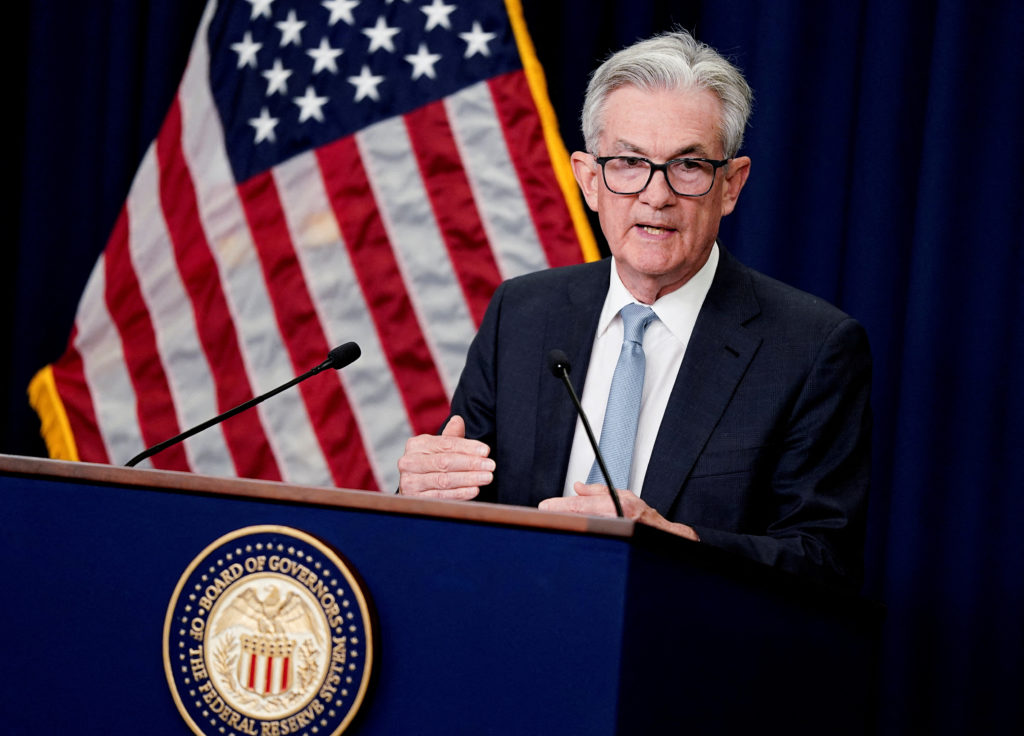Trending Stocks Ticker by Stock Target Advisor
Two Rate Hikes for 2023
The Federal Reserve’s recent decision to hold interest rates steady during its policy meeting on Wednesday June 14th, came as no surprise. However, the central bank’s indication that it is prepared to raise rates further this year has raised concerns about the potential impact on the economy, particularly the possibility of a consumer-led recession.
Federal Reserve’s Interest Rate Forecasts
While the Federal Reserve maintained its benchmark interest rate in the range of 5%-5.25%, it revised its interest rate forecasts for this year. Fed officials signaled that rates could rise to as high as 5.6%, implying the likelihood of two additional rate hikes in the near future. Notably, some officials even projected rates rising closer to 6%.
The decision to hold rates steady during the meeting was unanimous, but the central bank’s statement left room for future rate hikes. The Fed emphasized its intention to assess additional information and its implications for monetary policy before making any further decisions. This suggests that the Fed is closely monitoring economic developments and remains open to raising rates again this year.
Inflation and Economic Projections
Despite the recent easing of inflation from its peak of 9.1% in June 2022, inflation rates remain stubbornly above the Fed’s 2% target. Data released in May showed headline inflation at 4.1%, with core inflation, which excludes volatile food and energy prices, standing at 5.3%. These figures indicate that inflationary pressures persist and warrant the Fed’s attention.
The updated Summary of Economic Projections released by the Fed revealed officials’ expectations for growth, inflation, rates, and the labor market. Notably, officials now anticipate inflation finishing the year close to 4%, up from the previous forecast of 3.6%. Also they expect stronger economic growth of 1% this year, compared to the previous forecast of 0.4%. Unemployment is projected to rise slightly to 4.1% from the previous rate of 4.5%.
Concerns of a Consumer-Led Recession
The Fed’s decision to raise interest rates further this year, combined with the persistent inflationary pressures, has raised concerns about a potential consumer-led recession. Tighter credit conditions for households and businesses are expected to weigh on the economy, affecting hiring, inflation, and overall economic activity. However, the extent of this impact remains uncertain.
By raising interest rates, the Fed aims to curb inflationary pressures and ensure a sustainable economic environment. However, higher borrowing costs for consumers and businesses can dampen consumer spending, slow down business investments, and potentially lead to a contraction in economic activity. The risk of a consumer-led recession arises if these factors combine with other destabilizing factors in the economy.
Rates, Recession Catalyst?
The Federal Reserve’s decision to hold interest rates steady during its recent policy meeting, combined with its indication of potential rate hikes later this year, reflects the central bank’s ongoing concern about stubborn inflation. While the Fed’s actions are aimed at maintaining price stability and sustainable economic growth, the risk of a consumer-led recession cannot be ignored.
The ultimate impact of the Fed’s monetary policy decisions on the economy will depend on a range of factors, including the effectiveness of inflation containment measures, the resilience of consumer and business confidence, and the response of financial markets. It is crucial for the Fed to carefully assess these variables and strike a balance between addressing inflationary pressures and supporting economic recovery to minimize the risk of a consumer-led recession, which is very likely at this point as interest rates are surging to almost 25 year highs.




























